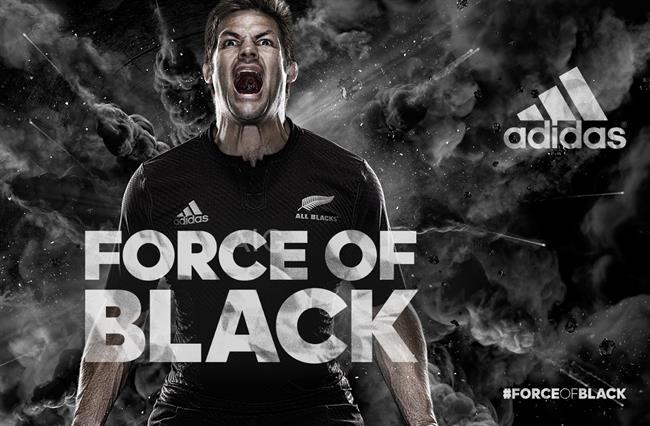
To football’s detriment it has too many stars on and off the pitch that can and do influence its value and perception
The clocks have gone back, the leaves are dropping and the sun is noticeably lower in the sky. Autumn has very much arrived. Real British rugby weather is here, the perfect setting for the finale of the tournament.
Asides from gently lulling us into Autumn (the tournament has been the perfect tonic for my normal bout of end of Summer blues), the Rugby World Cup seems to have genuinely infiltrated the hearts and minds of the nation.
Not only has it broken all records for online interaction (more visitors to the official website in the first weekend of the 2015 event than in the whole of the 2011 tournament), but tournament commercial revenues are up 50% on 2011 as well. []
Retailer momentum has remained despite England’s early exit and studies have shown that 80% of British people are still following the competition, 3% more than the FIFA World Cup at the same stage in 2014 (Arc).
Most importantly, the Rugby World Cup has become a mainstream ‘social occasion’. In the same way that the FIFA World Cup inspires social interaction; a welcome excuse to go to the pub or have a ‘World Cup gathering’, this year, rugby has broken out of its silo and become a part of our social calendar.
What did I do with my weekend afternoons before it started?
While the sport has a long way to go to catch up with its round-balled cousin in terms of reach, commercial and global success in light of yesterday’s additional revelations in the FIFA corruption scandal, the Rugby World Cup may have hit its stride at just the right time for sponsors.
More trusted
Prior to this week's announcement from Blatter, brand equity surveys had indicated that the Rugby World Cup is trusted three times more than its footballing cousin (Arc). Sadly for FIFA, this gap will likely widen even further following these shocking revelations.
To football’s detriment it has too many stars on and off the pitch that can and do influence its value and perception. In rugby, there is less ‘I’ in team. While there are rugby superstars on and off the pitch the onus is on the team.
Although we have seen ‘viral content successes’ from brands at this tournament that have an individual focus, such as Beats by Dre, if you dig a little deeper all is not as it seems.
Beats by Dre’s #TheGameStartsHere campaign (featuring England captain Chris Robshaw, Richie McCaw and Wesley Fofana) had a potential social media audience of about 9.6m, but its content only reached 4.9m, not fulfilling its potential, as there was very little reason for fans to feel connected or want to get involved; no opportunity to become part of the team.
Emirates’ activation as a sponsor across both global properties further illustrates the disparities and opportunity for rugby.
The airline’s FIFA World Cup ‘All Time Greats’ advert depicted Ronaldo and Pelé being celebrated on a flight to a game. The focus was on the players’ stories, their success and their fans, rather than the tournament itself.
While the current campaign concentrates on the game and the tournament. Emirates’ ‘Bringing Rugby Home’ campaign told the story of the rugby ball travelling across the world to the pitch at Twickenham. The tournament is for everybody, wherever and whoever you are.
Social engagement
Land Rover’s #Wedealinreal takes this further, and as a result has delivered extremely high levels of social engagement. Fans, amateur players and supporters are part of the story and therefore the conversation; the story does not exist without them.
Even Adidas, who completely dominated the FIFA World Cup 2014 from its real time content war room, set a more inclusive tone with its Rugby World Cup campaign, #ForceofBlack, as team kit sponsor for the All Blacks. The language illustrates the disparity between the sport’s focus. It’s inclusive; it puts the viewer in the team’s shoes and inspires the fans to become part of the squad. I contrast, its FIFA World Cup campaign, #AllInorNothing while asking the viewer to commit to the team by being ‘all in’ did not deliver the same message across comms; the onus was on the individual and their journey to being the best.
What has also become clear from both Adidas’ 2014 campaign and England team sponsors, Samsung’s Rugby World Cup campaign is that social success is connected to reactive and real-time marketing.
Samsung leapfrogged bigger spending rivals becoming the most mentioned brand during the group stages and one of the most engaged with via its #SamsungRugby campaign
Samsung leapfrogged bigger spending rivals becoming the most mentioned brand during the group stages and one of the most engaged with via its #SamsungRugby campaign by working in partnership with ITV to deliver real-time in tweet content that is topical and highly shareable. One clip during the England vs Wales match reached over 2.1m people. Adidas owned the FIFA World Cup with the same formula, although again the focus on the individual in comparison to the team was apparent.
So we look to the final weekend of the greatest Rugby World Cup to date. The spectacle promises to be a good one with what’s being billed the greatest All Black team ready to take on the Aussies. Hopefully, they’ll deliver a little recompense to the England fans that had to watch Australia know out the host. We can only hope.



.jpg)
.jpeg)
